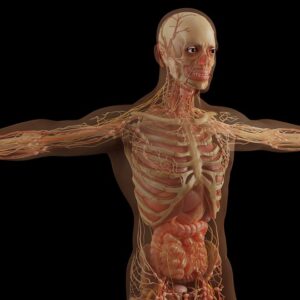Exercise has both short and long term effects to muscular system. Exercise works as a stimulus and gives stress to muscles.
After exercise you may feel short term effects like:
- Blood flow because of increased volume of blood that is pumped to muscle tissue.
- Muscle fatigue is short-term decline in the ability of a muscle to generate force.
Another way to describe muscle fatigue is as the short-term inability to continue to repeat muscular contractions with the same force. - Muscle exhaustion when exercise continues through muscle fatigue without rest after time it can lead to muscle exhaustion.
- Muscle damage often happens, because of over-stretching without a proper warming-up or no warming-up before intense exercise.
- Cramp uncontrollable and very painful muscle contraction.
After some time passes then long
term effects on muscles takes place like:
- Muscle size increases mainly due to muscle ability to adapt to stress over a period of time which increases them in size.
- Muscle coordination increases when doing exercises which require skill and technique e.g.: dribbling ball.
- Blood supply to muscles increases due to long-term exercise by that improving delivery of various nutrients, minerals and vitamins to muscles and making them more effective and faster at regenerating after injury or workout.
Short term effects such as:
- Blood flow – after exercise you can notice that muscle tissue (warm muscle) is bigger than cold muscle, because of blood flow into them. It can increase by up to 25 times, because muscle requires more energy and oxygen.
- Muscle fatigue – is the decline in ability of a muscle to generate force. It can be a result of intense exercise, but abnormal fatigue may be caused by barriers to or interference with the different stages of muscle contraction. There are two main causes of muscle fatigue. The limitations of a nerve’s ability to generate a sustained signal (neural fatigue) and the reduced ability of the muscle fibre to contract (metabolic fatigue).
- Muscle exhaustion – general exhaustion often occurs after you have done too much activity at one time, such as by taking an extra-long hike. You may feel weak and tired, or your muscles may be sore. These sensations usually go away within a few days. In rare cases, generalized muscle weakness may be caused by another health problem, such as problems with body regulating the distribution of energy to muscles and organs.
- Muscle damage – any effort beyond muscle ability level or accident can tear the fibres and cause muscle damage. When a muscle fibre is damaged, the body immediately starts to repair it at the cellular level. Muscles most of the time repairs by themselves (if body is functioning properly) through time. If damage or injury is critical, surgery might be needed.
- Cramp – because of over-exercise, lack of nutrients like magnesium or bad blood circulation when muscles don’t receive enough oxygen. It is very painful and can be dangerous if doing exercise that involves heavy weights alone.
Long-term effects of exercise
- Muscle size – is mostly determined by persons genetics, but can be affected with life choices like: anabolic steroids, exercise, and healthy food. Exercising specific muscles regularly can increase their size by up to 60%. This increase in muscle size is mainly due to increased diameter of individual muscle fibres.
- Muscle coordination – It trains muscles to work more efficient and effectively by working together. E.g.: when the prime mover contracts more rapidly the antagonist (muscle) must also relax as quickly to prevent blocking the movement.
- Blood supply – As a result of frequent exercise over a sustained period of time both the quantity of blood vessels and the extent of the capillary beds increases.
Effects of exercise on muscular system would benefit by increasing size and number of mitochondria, improved perception of muscle tone and also overall improved:
- Coordination
- Power
- Balance
- Speed
- Agility
- Body composition
- Reaction time
- Muscular endurance
- Flexibility



